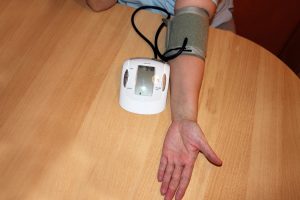Do you think you are pregnant? Thinking of it can get you excited as well as anxious at the same time. After all, this is what you have been planning for months. A pregnancy test could answer your question. But do you know that your body gives out certain signs that helps you to narrow down the possibility of pregnancy? Here we will look into the first signs of pregnancy and understand ways to cope with them.
Table of Contents
Are the first signs of pregnancy the same for all women?
All women are different. Their experiences, intensity, and even the symptoms can vary. The first signs of pregnancy can also imitate some common symptoms of pre and post menstruation like abdominal bloating, fatigue, or breast tenderness. However, a missed period or weight gain is the sure indicator for pregnancy and common for most women.
Here are some of the first signs of pregnancy to look for even before you do a pregnancy test.
1. A Missed Period
A missed period is one of the earliest symptoms of pregnancy in first month and is a clear indication that you are pregnant. But it should be noted that not all missed periods can cause pregnancies.
A missed period can be due to other factors such as hormonal imbalances, stress, or even if you have stopped taking birth control pills. But if you think that pregnancy is a possibility, then it is best to have a pregnancy test.
But why do we suddenly stop menstruating during pregnancy? During pregnancy, the body produces a hormone called the human chorionic gonadotropin or hCG. This stimulates the ovaries to stop releasing eggs each month until childbirth. The periods stop after four weeks of conception.
Some women may experience light menstruation or irregular periods during early pregnancy. It is best to seek medical help immediately and do a pregnancy test at home which will detect the presence of hCG in the urine.
2. Implantation Bleeding and Cramping
Mild cramping of the uterus during the first trimester of pregnancy is quite common. This happens because the uterus is expanding. But if there is bleeding accompanied by severe cramping, one must need to consult a doctor immediately.
Vaginal bleeding during early pregnancy is due to implantation bleeding and is one of the early signs of pregnancy first two weeks. Implantation bleeding occurs after conception when the blastocyst or the embryo tries to implant into the uterus lining. This causes mild bleeding.
Symptoms of implantation bleeding
- Light pink, red, or brown-colored bleeding
- Spotting or occasional drops of blood
- Moderate to severe abdominal pain
Implantation bleeding will last for two to three days and does not pose any major threat to the pregnancy. If you are having implantation bleeding, your doctor may ask you to take the following precautions:
- Taking ample rest
- Avoiding stress, heavy exercise, and anxiety
- Not take alcohol or illicit drugs without consulting the doctor
3. Fatigue
Fatigue is one of the first signs of pregnancy and it usually leaves you doubtful about how you’re body is doing. You can feel exhausted and tired all the time during early pregnancy and the symptoms can persist throughout the 9 months of pregnancy.
During pregnancy, your progesterone levels increase rapidly and your body goes through a lot of hormonal changes and this can cause fatigue. Other changes like decreased levels of blood sugar, low blood pressure, and increased production of blood can cause fatigue.
To combat fatigue, your doctor may ask you to:
- Take plenty of rest
- Eat protein-rich food
- Include a lot of vegetables, fruits, and iron-rich food into your diet
- Get enough sleep
- Keep your body temperature cool

4. Increase in body temperature
Pregnancy can do a lot of changes to your body. The basal temperature of your body can be high during pregnancy and there is no need to get alarmed. This is due to several reasons such as:
- An increase in the metabolic rate
- Increase in the level of progesterone or other hormones
- Increase in the weight
All these factors may contribute to the overall increase in body temperature. However, if at any point your temperature is abnormally high, a doctor should be contacted immediately for relief of the symptoms.
To cope with the increase in temperature you may:
- Take in cool baths especially during summer
- Drink a lot of beverages and juices
- Exercise moderately
5. Frequent urination
This can be irritating but is something that every pregnant woman has to cope with. Frequency in urination generally increases during the 6th or 8th week of pregnancy.
During pregnancy, more blood is pumped throughout your body. This increases kidney fluids and puts pressure on your bladder. Moreover, a rise in hormone levels can also cause more urine production.
An increase in the frequency of urination can result in accidental leaking or more visits to the bathroom. Do not restrain yourself. Whenever you feel the need, go to the bathroom and relieve yourself. This will help to control the leakage. Drinking lots of fluids and beverages helps to replenish the loss of fluids in your body and keeps you hydrated.
6. Morning sickness
Morning sickness like nausea and vomiting usually occurs during the first few weeks of pregnancy. The symptoms generally subside or become less severe from the second semester.
Morning sickness is one of the first signs of pregnancy and can occur at any time of the day and even during nights. The intensity of the symptoms varies from person to person. Generally, the changes in the hormones are responsible for the symptoms and can take a toll on one’s health.
Some women may even find it difficult to eat or keep the food down. They may vomit immediately after taking food. Severe nausea and vomiting are a medical condition known as hyperemesis gravidarum or HG and may require immediate treatment or even hospitalization. It can cause rapid weight loss and even obstruct the fetal growth. If your symptoms are not so severe, you may talk to your OB/GYN who will prescribe you some mild medications.
To tackle morning sickness, you may use some natural remedies like:
- Drink plenty of water and fluids and keep yourself hydrated
- Try to eat small meals at frequent intervals
- Munch on some crackers or toasts whenever you feel nauseated
- Drink ice-cold fruit juices
- A sip of ginger tea might help
7. Vaginal Discharge
An increase or change in vaginal discharge is one of the early signs of pregnancy discharge. The nature and intensity of vaginal discharge may be noticeable within two weeks of your conception. As your pregnancy progresses, the discharge increases and is more towards the end of your third semester.
The changes in your vaginal discharge are due to the change in your hormone levels and there is no need to worry. It is a normal phenomenon.
Pregnancy softens the cervix and the vaginal walls. This increases the production of the discharge. This is the body’s defense mechanism which protects the cervix and the vagina from infection. The increase in discharge towards the end of your pregnancy lubricates the passage and helps the baby to push out of the cervix.
During the last few weeks of pregnancy, you may notice streaks of blood with thick mucus in your discharge. This is called “show” and is normal. It indicates the early signs of labor. However, if you are having abnormal discharge it might indicate an infection and should be reported to a doctor immediately. Abnormal discharge symptoms include:
- Foul smell
- Green, yellow, or grayish discharge
- Itching or redness in the area
To avoid vaginal infections, you may:
- Wear loose cotton clothes
- Always wear cotton underwear
- Avoid tight-fitting synthetic underwear
- Shower regularly and keep your genital area clean and dry
- Drink plenty of water
- Include yogurt and naturally fermented food in your diet that contains healthy bacteria
8. High Blood Pressure
High blood pressure or hypertension during pregnancy is common and can cause serious health problems both for the mother and the child. Some of the important factors that are responsible for high blood pressure are:
- Multiple pregnancies which means being gifted with twins or triplets might cause you hypertension
- Unhealthy lifestyle such as eating junk foods or not doing enough physical activities
- Late pregnancy or pregnancies after the age of 35
- Pregnancies with assisted technologies such as IVF
- First pregnancies can often cause high blood pressure
High blood pressure can cause serious complications such as preeclampsia, eclampsia, placental abruption or even stroke for the mother. These complications can result in preterm delivery and low birth weight of the baby. To cope with high blood pressure, you need to do:
- Regular checkups with your doctor and keep your pressure under strict watch
- Monitor your pressure regularly at home
- Consult a nutritionist and practice dietary regulations
- Go for brief walks
- Avoid stress and anxiety
- Drink lots of water
- Take snacks to prevent dizziness

9. Breast Tenderness
Breast changes or tenderness are one of the first signs of pregnancy. This happens due to the change in your hormone levels and occurs during the first few weeks. The tenderness or swelling will go away when your body adjusts to the change in hormone levels.
There will be a tingling sensation and soreness in your breast. Your breasts will become heavier. The area around the nipples or areola will become darker in color. The size of your nipples will also increase. The pain and discomfort will go away soon.
To bring comfort to your breast pain you may:
- Use a cotton supportive maternity bra
- Wear loose clothes
- Use breast pads that can reduce friction and nipple pain
10. Sensitivity to Smell and Foods
Smell sensitivity and aversion to certain foods is one of the first signs of pregnancy and occurs during the first few months. The symptoms generally go away during the second trimester. For some, the conditions can persist throughout the entire pregnancy.
You may notice a drastic change in your food habits during pregnancy. The smell of some of your favorite foods can cause nausea or make you ill. Even the look of certain foods can create aversions.
The human chorionic gonadotropin or hCG is the major cause of such a change. The aversions generally go away as your pregnancy progresses or after childbirth. The most common type of food aversions includes:
- Spicy foods
- Greasy fried foods
- Garlic and onion
- Fish and some kinds of seafood
- Spicy food
- Some vegetables
Try to take light non-spicy food. You can avoid meat and fish for the time being, but proteins are a must for any healthy diet. Include a lot of pulses, green leafy vegetables, fresh fruits, and curd in your diet. This will help you to stay healthy and also get over the sensitivity.
11. Mood Swings
Pregnancy is a completely new phase in your life. It can give you a mix of feelings. The joy of motherhood brings along excitement as well as stress and anxiety. Parenthood can be challenging and constant worries about your unborn child or your health can cause mood swings. Mood swings are common during early pregnancy and the third semester as you prepare for the birth of your baby.
Mood swings can occur due to:
- Change in metabolic rate
- A change in hormone levels like estrogen and progesterone
- Fatigue and weakness
So how do you manage your mood swings? Here are a few ways that will help you cope with the stress levels.
- Go for long walks.
- Try to get plenty of sleep.
- Watch a good movie with your friends or colleagues.
- Eat a balanced diet.
- Drink plenty of water.
- Take a yoga class.
- Talk to your partner or your loved ones and take their support.
- Spend quality time with family.
If you feel that your mood swings are getting worse you may seek medical help. Depression and anxiety are quite common during pregnancy and should not be taken lightly. It can have an adverse effect on your health as well as the health of your baby.

12. Constipation and Bloating
Some of the first signs of pregnancy include constipation and bloating and is mostly due to the intake of prenatal vitamins and iron supplements. Iron supplements can cause dark stools and constipation. Since your bowels are not clear, it may cause bloating and discomfort.
Gentle home remedies may help you increase your bowel movements and reduce constipation.
- Eat fibrous vegetables, whole grains, and fruits
- Drink plenty of fluids
- Take brief walks especially after having lunch or dinner
- Probiotics like yogurt can help in bowel movements
If your symptoms are too severe, your doctor may prescribe certain stool softeners or laxatives.
Writing allows me to pour my heart out in words. So, that’s what I’ve been doing for the past 6 years. I strive to bring in a change in the world by taking tiny steps of curating the right message that needs to be conveyed.





